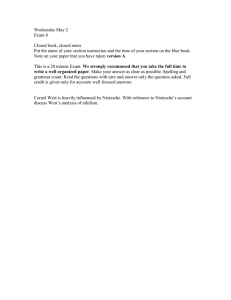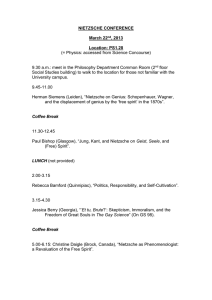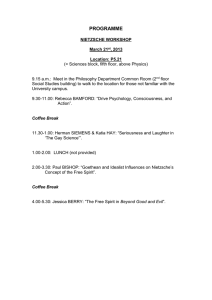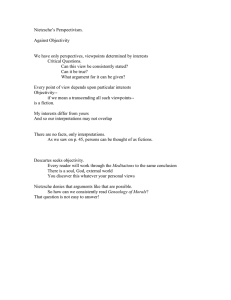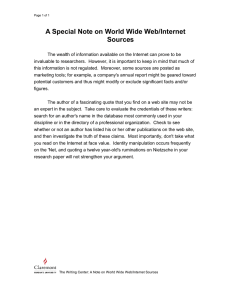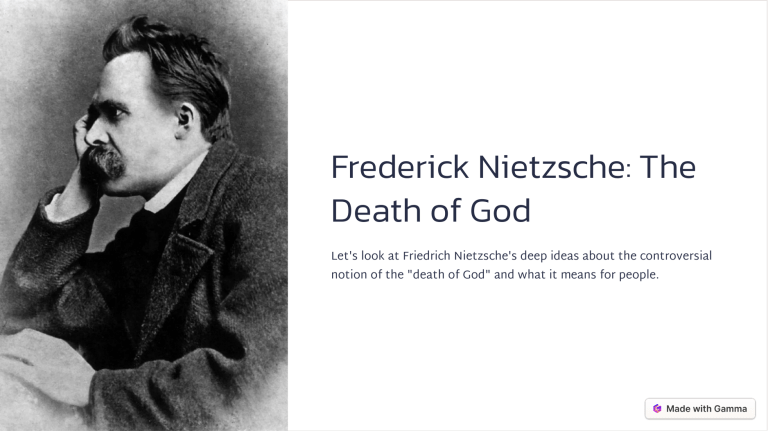
Frederick Nietzsche: The Death of God Let's look at Friedrich Nietzsche's deep ideas about the controversial notion of the "death of God" and what it means for people. Frederick Nietzsche's Philosophy 1 Existentialism 2 Will to Power 3 Ubermensch Nietzsche believed in Nietzsche emphasized Nietzsche's ideal of a individual's freedom and fundamental human transcends societal embracing the the creation of one's own meaning in life. the drive for power as a motive that influences all actions and decisions. superior human who norms and traditional morality. The Concept of the Death of God 1 Metaphorical Meaning 2 The Loss of Moral Foundation Nietzsche's The The death of God dead" means that morality and leaves a statement that "God is traditional religious beliefs in society are becoming less important or fading away. challenges the basis of void that needs to be filled. 3 Embracing Nihilism Nihilism, The idea that life doesn't have a builtin purpose becomes a natural result of the death of God. Nietzsche's Critique of Religion 1 Religion as Slave Morality Nietzsche argued that religion, with its focus on self-sacrifice and submission, immortalize a weak moral framework. 2 The Illusion of the Afterlife Nietzsche didn't like the religious idea of an afterlife because he thought it diverted attention from the here and now and got in the way of human advancement. 3 Religion as Social Control According to Nietzsche, religion serves as a tool for those in power to maintain their control over the masses. The Implications of the Death of God 1 Loss of Meaning and Purpose When people don't have the direction Moral Relativism 2 of religious beliefs, they might have a hard time discovering meaning and purpose in a world that's becoming The absence of a divine authority less religious. challenges the existence of absolute morality, leading to a society with various moral perspectives. 3 Existential Anxiety Recognizing the "death of God" can make people feel existential anxiety, making them face the inherent uncertainty of life. Nietzsche's Solutions to the Problem Self-Overcoming Creating New Values Nietzsche proposed that Nietzsche promoted making individuals embrace challenges, overcome limitations, and cultivate their own values. new values from your own life experiences and letting go of old moral systems passed down to you. Embracing the Will to Power Nietzsche supported the idea of people using their inner strength and being more assertive in the world. Conclusion and Key Takeaways A Bold Point of View Nietzsche's philosophy questions commonly accepted beliefs and promotes thinking deeply and critically. The Need for Personal Responsibility With the death of God, individuals hold the responsibility to define their own values and shape their own lives. Honoring Human Possibilities Adopting Nietzsche's concepts can set free human potential and the quest for genuine self-expression.
